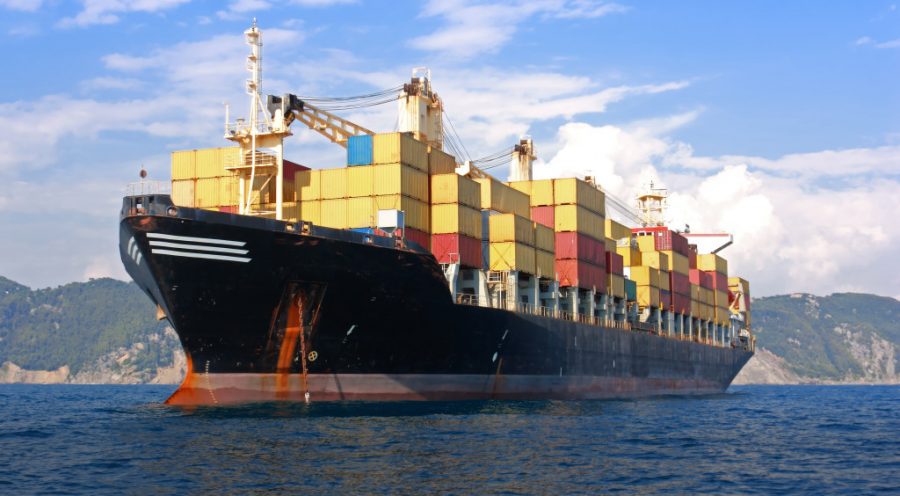Nigerian Maritime Administration and Safety Agency (NIMASA) has projected the country’s maritime sector will spend about N939.5 billion ($2.588 billion) on vessels financing in the next four years.
NIMASA stated this in Nigeria’s Maritime Industry Forecast 2019-2020, titled “Harnessing The Maritime And Shipping Sector For Sustainable Growth”. The body forecasted growth amid claims of under-exploitation of the sector’s potential. But the political outcome after the general elections will determine the actualisation of the growth.
NIMASA’s positive projection comes at a period industry stakeholders are clamouring for immediate multi-sectoral intervention to aid financing and infrastructure development of the industry.
Despite prevailing domestic and global conditions, the forecast report stated that industry volume is estimated to grow by 10 percent this year, linking it to a successful general election which will commence from February 16 to March 2, 2019.
The forecast will increase awareness on investment opportunities for operators, and also aid in the creation of more businesses and job in the maritime sector, Chairman, NIMASA Board, Gen. Jonathan India Garba (rtd), said.
Also, the Managing Director, Nigerian Ports Authority (NPA), Hadiza Bala Usman, who was represented by Oladunjoye Rufus, applauded NIMASA for the forecast, stating any nation that fails to plan is definitely planning to fail. Adding that to further grow the industry, there is a need to prioritise infrastructure development.
Nigeria’s position in Africa’s maritime landscape
The growth of Nigeria’s maritime industry is also tied to the level of security across the country, including Nigeria’s territorial waters, due to the challenges insecurity pose to trade. But Director-General, NIMASA, Dakuku Peterside said the industry has the potential to contribute at least 10 per cent of Nigeria’s Gross Domestic Product (GDP) in no distant future.
During the presentation yesterday in Lagos, Nigeria is said to generates about 65 per cent to 76 per cent cargo throughput in West Africa, while 65 per cent of all cargo heading for these regions will most likely end up in the Nigerian market, making Nigeria the biggest market in Africa.
Funding local operators
NIMASA is in search of other financial sources for local operators, as the Cabotage Vessel Financing Fund (CVFF) is not adequate enough to address the huge demand for maritime assets, according to Peterside. Adding that shipping is capital intensive.
“We have been engaging with government at the highest level to push for special intervention fund, special interest rate of single digit, and other incentives that will drive optimal performance in the sector. We shall not relent in our drive to put the right framework together to help beneficiaries and investors have good return on investment,” he said.
NIMASA Projections for 2019-2023
The forecast report disclosed that tugboats, security patrol vessels, jargon barges, and crew boats, among others, would be among the top five vessels in projected demand between 2019 and 2023. Stating that the estimated industry expenses on Category 1 vessels would be $1.65 billion or 51 per cent of total spend compared to $1.04 billion or 33 per cent for Category 2 vessels, and $519 million or 16 per cent for Category 3 vessels, totaling $2.588 billion (about N939.5 billion).
Meanwhile, in a Guardian report, Nigeria spent about N1.09 trillion on vessels in the last four years. The industry spent $2.21billion on Category 1 of marine vessels representing 73 per cent of total spend. Category 2 was $393 million or 13 per cent, while $437 million or 14 per cent was invested in Category 3 vessels between 2014 and 2018.
Minister of Transportation, Rotimi Amaechi’s reaction to forecast
While acknowledging the security threat the maritime industry in Nigeria faces, the Minister of Transportation, Rotimi Amaechi said the NIMASA forecast will guide the operations of the industry’s players in line with international trends and standards, and assist the operators in harnessing the potential within.
Speaking on behalf of Amaechi, Gloria Ayabe said the government is aware of the security threats from armed robbery, oil theft piracy and other forms of unreported crimes, and with the promotion of the Anti-piracy Bill, currently before the National Assembly, the government is working to curb these form of threats.












